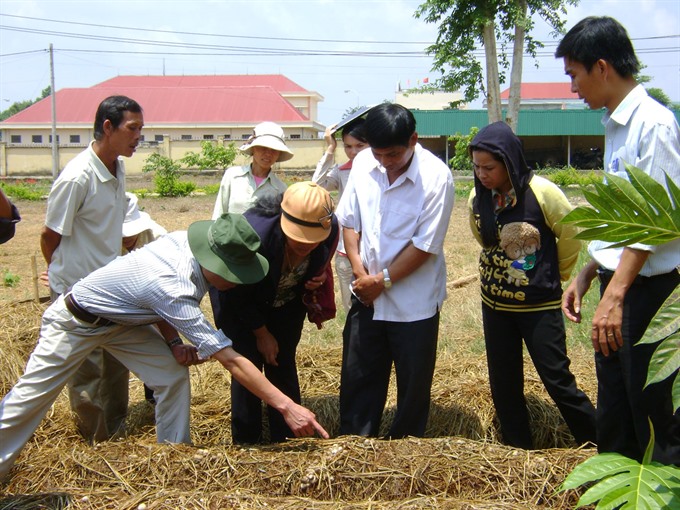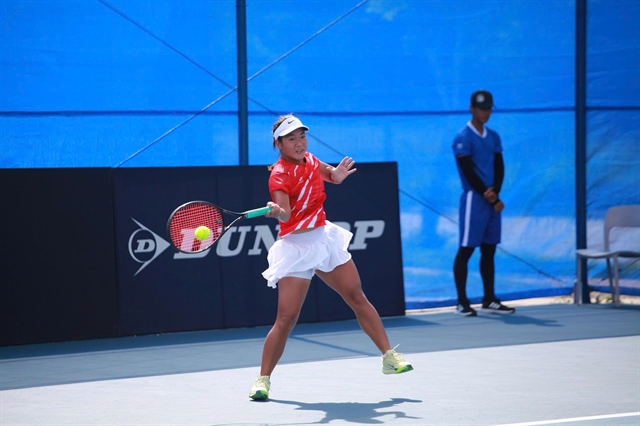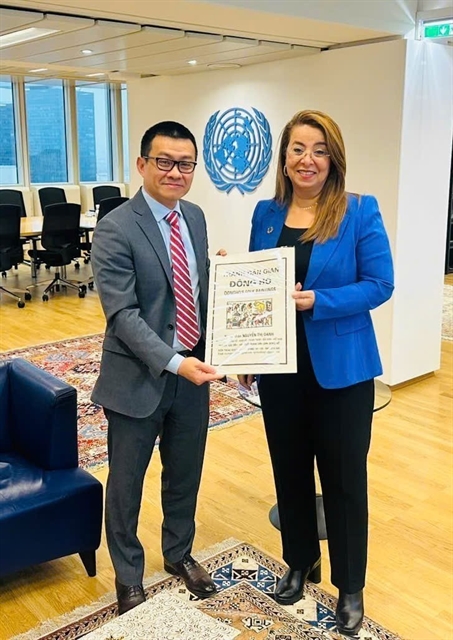

Local authorities should focus on the quality of vocational training for farmers to make it more practical and applicable instead of investing in facilities and studying equipment, which was unnecessary and caused waste, a report has revealed.
 |
| Local authorities should focus on the quality of vocational training for farmers to make it more practical instead of investing in facilities and studying equipment, which is unnecessary and causes waste. — Photo baoquangninh.vn |
HA NOI – Local authorities should focus on the quality of vocational training for farmers to make it more practical instead of investing in facilities and studying equipment, which is unnecessary and causes waste, a report has revealed.
The report detailed vocational training for farmers in seven provinces from 2014-16. The report was conducted by Oxfam and the Ministry of Agriculture and Rural Development’s Economic Co-operation and Rural Development Department in Lào Cai, Hòa Bình, Nghệ An, Quảng Trị, Đắk Nông, Ninh Thuận and Trà Vinh.
Hoàng Xuân Thanh, representative of Oxfam and member of the research team, said that huge investments in vocational centres were wasteful as many centres could only hold a few classes or even none.
A vocational centre in northern Hòa Bình Province’s Đà Bắc District was an example. Built last May with investment of VNĐ12 billion (US$529,440), the centre could not hold any classes due to a shortage of water and electricity. Most of the classes were held in communes.
Ninh Sơn Vocational Centre in southern Ninh Thuận Province and Dakrong District’s Vocational Centre in central Quảng Trị Province were in the same situation. As many as VNĐ20 billion ($882,400) and VNĐ16.5 billion ($727,980) was invested in the two centres respectively, but no classes were held due to a shortage of teachers, he said.
In the meantime, co-operation among authorised agencies has remained ineffective, affecting training quality.
Đào Văn Tiến, head of the Directorate of Vocational Training’s Regular Vocational Training Department said that many localities did not put their curriculum into practice, making it hard for farmers to understand.
The rate of farmers who managed to get out of poverty after attending vocational courses was only between 4-5 per cent on average in each locality. In some provinces such as Quảng Trị and Trà Vinh, the rate was only 1 and 0.5 per cent, the report revealed.
Tiến said it was necessary to evaluate what kind of vocational courses would be held, who would be eligible for the courses and how they would be applied to their production.
For example, he said, a farmer wanted to learn about raising pigs must have his own farm and capital to develop his business.
Farmers should be taught techniques to raise hundreds or thousands of pigs or plant many hectares of rice fields as they already know about small-scale business, he said.
Ma Quang Trung, head of the ministry’s Economic Co-operation and Rural Development Department said that from this year, the ministry was in charge of holding vocational training for farmers under the Government’s decision this August.
The ministry tended to reduce the theory and focus on practice, showing how to do the job for farmers, so those who were illiterate could understand.
Trung said the training would be flexible in different localities. In the Mekong Delta region seriously impacted by climate change, farmers would study techniques of raising shrimp instead of planting crops and rice fields. Fishermen in the central region would be trained about farms and cultivation techniques to improve their income.
According to the ministry’s programme on vocational training of farmers in 2017-20, more than 913,500 farmers would have access to the courses, 80 per cent of which would have jobs and stable incomes.
The total cost of the programme was VNĐ1.75 trillion ($77.2 billion). – VNS




